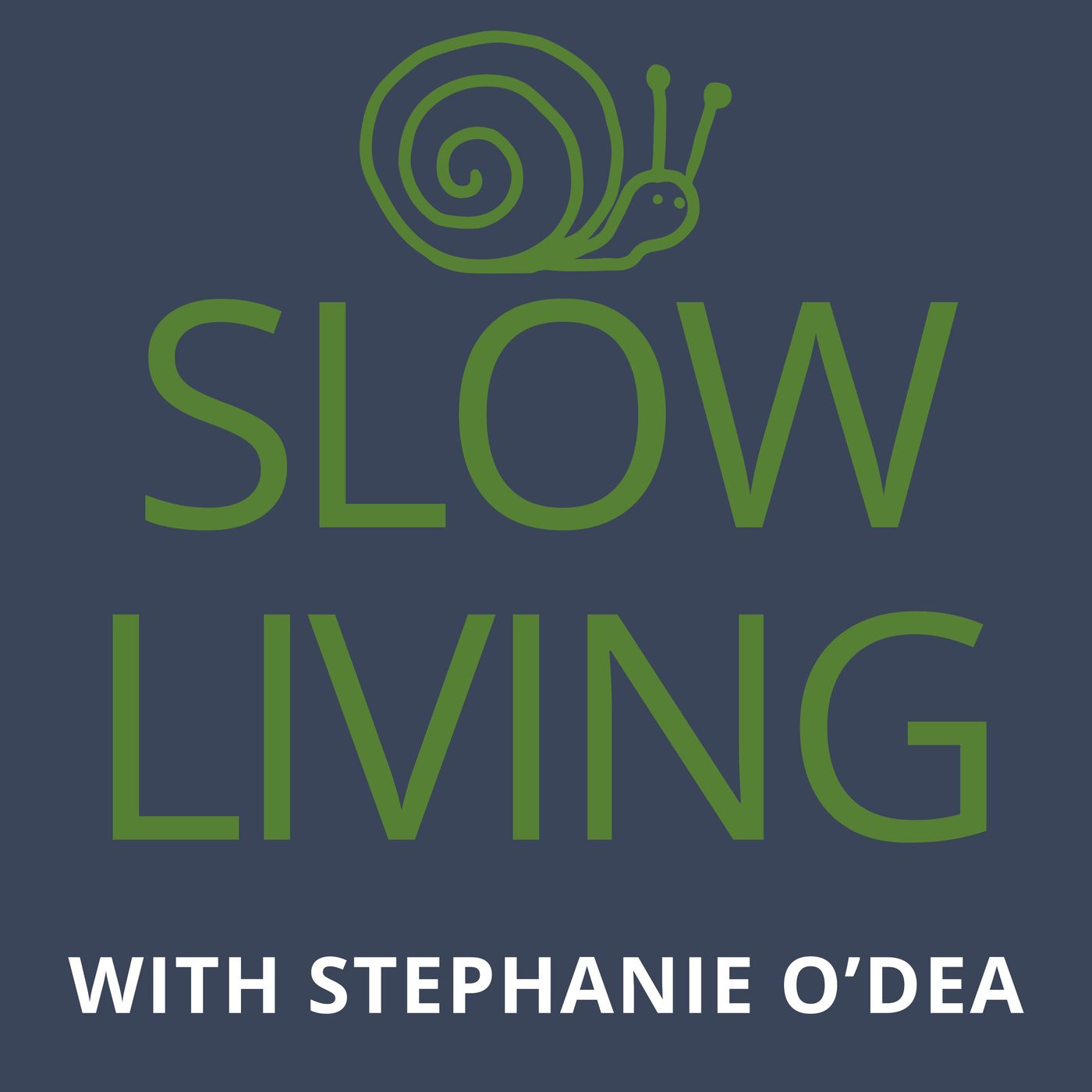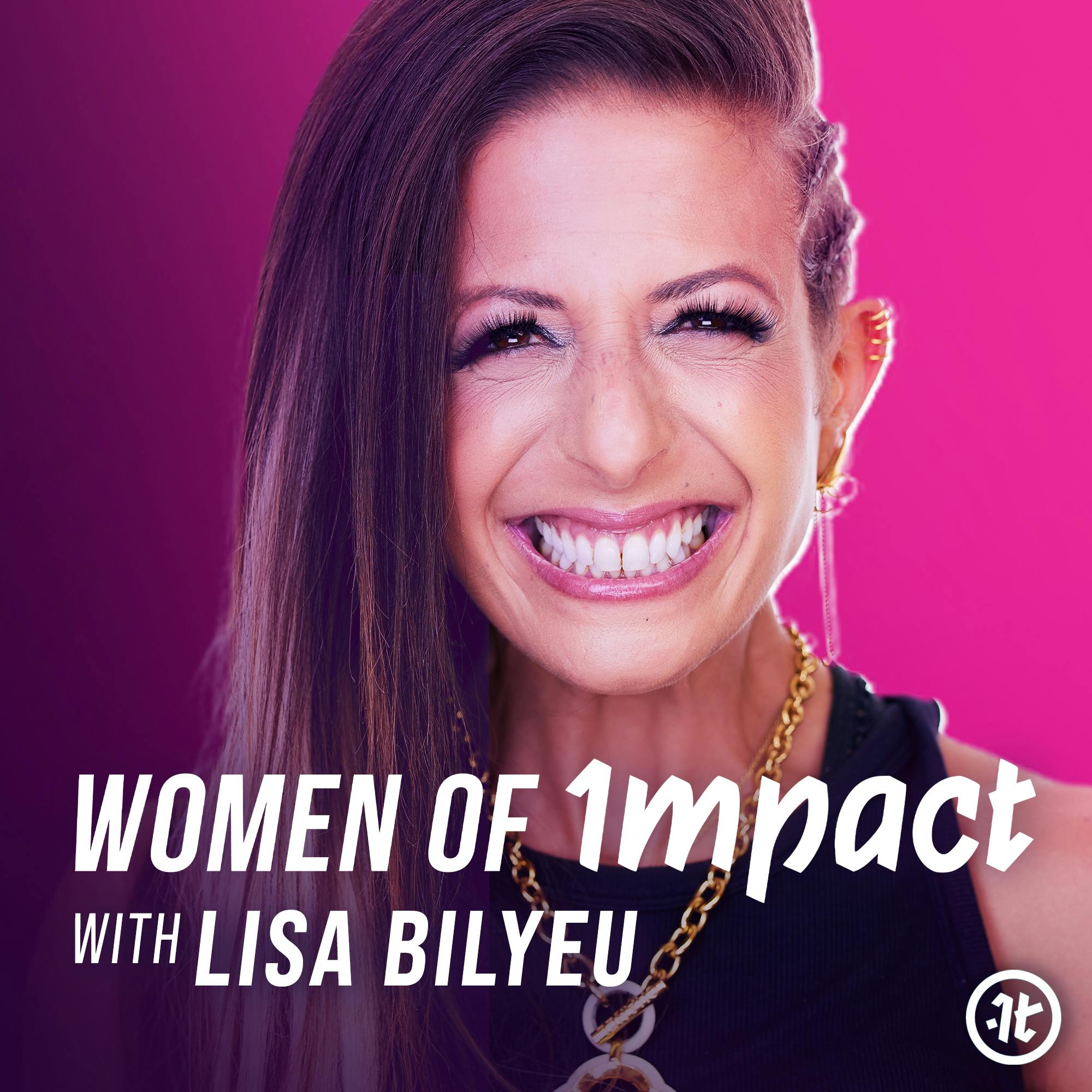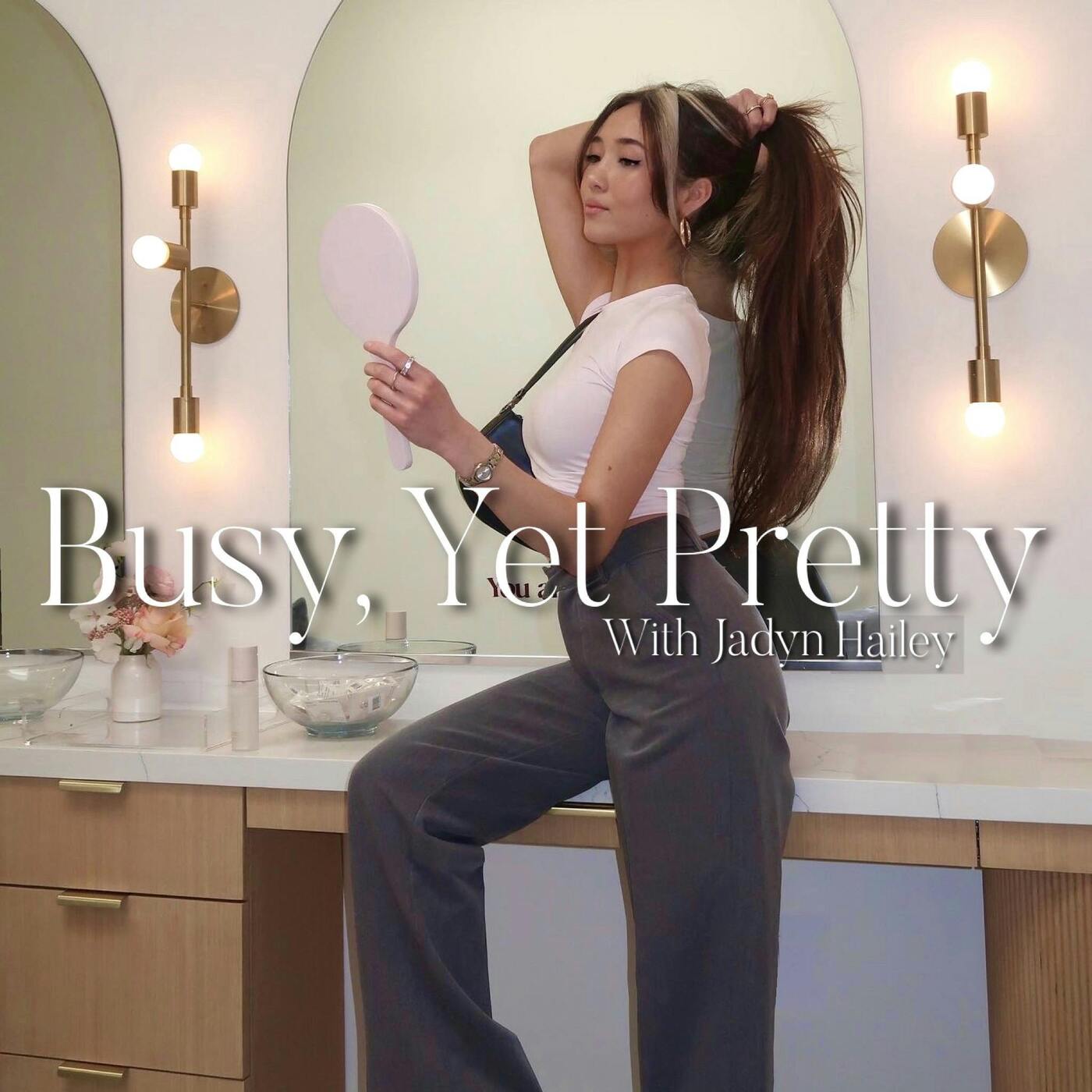
The Self-Help Podcast with Deepali Nagrani
Hi, I’m Deepali — a speaker, storyteller, and proud mom to a wonderful one-year-old. I live in Victoria, BC, Canada, hands down the best place to live!
For as long as I can remember, I’ve been drawn to public speaking. It lights me up in ways I can’t quite explain. I’ve always sought the stage, longing for a space to say something that matters.
Then one day, I realized: if you can’t find a stage, build one.
This podcast is that stage. It was born not just from my love of words, but from one of the hardest chapters of my life. At 32, after one of the toughest chapters of my life, I discovered something worth sharing: my voice, reshaped by truth and tenderness.
Here, I speak from the messy middle of motherhood, healing, identity, fear, hope, and everything in between. It’s not perfect, but it’s real. If you’re craving something genuine, something that feels like a deep breath — you’re in the right place.
Let’s speak the truth. Let’s find meaning together.
Welcome to the stage I built from the feeling of always wanting to be on one.
I’m so glad you’re here.
The Self-Help Podcast with Deepali Nagrani
Stop Being Your Own Hater
We challenge the inner critic that keeps us small and trade fear-fed stories for honest, loving self-talk. From childhood conditioning to social comparison, we map the patterns, name the signs, and practice small shifts that turn the critic into an ally.
• roots of the inner critic in childhood messages and social media conditioning
• a personal story of fear before a talk and the reality that followed
• awareness exercise to write down exact self-talk and trace its source
• signs of self-hate: rejecting compliments, overreacting to mistakes, sabotage
• perfectionism as fear and procrastination in disguise
• comparison draining joy and hiding your unique path
• practical reframes, progress over perfect, and bright-line rules
• seven-day practice to pause, notice, and speak with love
If this episode resonated with you, share it with someone whom you think needs to hear it!
💛 Thank you for being here.
If something in this episode spoke to you, I hope you carry it with you — or share it with someone who might need it too.
I'd love to hear your story, your thoughts, or just how you're feeling after listening. Reach out anytime at deepalinagrani23@gmail.com
🌐 For more stories, resources, downloadable freebies please visit:
www.deepalinagrani.com
🕊️ This is just the beginning.
Take care of your body. Be gentle with your heart. And never forget — your story matters.
Welcome, welcome, beautiful souls, to another episode of the self-help podcast with Dipali. I'm your host, a woman with big ambitions and dreams who loves to speak from her heart, and this podcast is your safe space to help you unlock your very best self. Now, I'm going to start with a question that might sting a little bit here. Are you ready? Here it is. Are you being your own biggest hater? Take a breath, sit with that for a moment, because the chances are that the answer might be a yes. In some cases, a resounding yes. And here's why I'm saying that. Every single day I talk to people who are smart, talented, kind, ambitious, and the way they speak to themselves is brutal. Absolutely brutal. Like if you would speak to your friend that way, you would not have any friends. And the words that they would never say to someone they love, words they'd never ever even say to a stranger on the street, or sometimes not even on the internet. So think about it. How many times have you called yourself stupid or said like, I'm an idiot, I don't know anything, or I'll just never get this right, I don't deserve this, I'm not good enough, yadda yadda yada. And the truth is, sometimes the harshest enemy you'll ever face in your life isn't out there, isn't someone right across the room, not the boss who criticizes you, it's not the stranger who judges you, and of course, it's not your parents or your friends or society, it's the person that you see every day in the mirror. The harshest enemy you face is the voice living inside your own head. Yeah. That little nudging voice, the one that whispers, You can do this. Who do you think you are? That's the voice that we're talking about, and that is the voice that we are going to face today. Over the next few minutes, we are going to go deep, and I mean the we are going to unpack where that voice comes from, why is it even there, how to recognize it, and most importantly, how to shut it down. I think that's uh paramount, or better yet, how to transform it. Because here's the deal: the voice that doesn't have to be your enemy, it can become your ally, but first you've got to understand this. Let me start with a quick story. A few years back, I was about to take a leap in my career. I had an opportunity to speak at an event. Nothing huge or fancy, maybe 40 people in the room, but to me it felt massive. And in the days leading up to it, of course, I was very excited and grateful that the opportunity presented just until the night before. That's when the voice showed up. You know that one little voice in your head, you're going to mess this up real hard. You are not even a professional speaker. What do you think you're going to do? Nobody's going to take you seriously, things like that. And you know what? I almost didn't go. I almost called in with some excuse, but I didn't. Somehow, something within me said, Maybe I can give it a chance. But I was almost on the verge of just calling in with some excuse and not going in. And you know what happened? I delivered the talk, people clapped. Some even came up to me afterward and said my words hit them deeply. And I received a ton of messages from women across different floors and different teams and departments just letting me know how they echo the sentiments that I shared. And here's what shocked me really: the fear, the judgment, the criticism. I was drowning in the night before. And none of it was real. It was all uh fake, it was all stories that the little voice was telling me in my mind. It was not the reality. Nobody in that room was hating on me, and no one was even planning or wishing that I would fail, right? The only one who was was me. That's when I realized something that has stayed with me ever since. The biggest battle we fight isn't with the world, but it's actually with ourselves. Think about it now. Let's dig into this. Why do we turn on ourselves? Why does the brain, this powerful tool that's supposed to help you survive, sometimes feel like your biggest bully? Well, the roots run deep. A lot of it starts in childhood. Maybe you grew up hearing things like, don't get too full of yourself, or why can't you be more like A, B, and C, or like your sister, like your brother, anybody. Or maybe every time you made a mistake, someone shamed you for it, and slowly that voice, that outside voice, became your inside voice. The critic that used to live in someone else's mouth sets up a camp in your own mind. In fact, permanently settles in there. Then society pours fuel on the fire. We scroll social media comparing ourselves to everyone else's highlight reel. We are bombarded with advertising that thrives on making us feel less than, not thin enough, not rich enough, not smart enough, not successful enough, right? It's good for their business. It's good to get their cash registers ringing. Don't lie, but think about the times that you've thought to yourself, maybe if my eyebrows were a little more fuller, my nose was thinner, and maybe my jaw was better, or I had a more Chisel jawline, then I would have been pretty, in my opinion. Or I would fit into the societal standards of beauty. Because that's what the inner critic says, see, I told you so, you'll never measure up. But here's the truth. I need you to hear right now that voice is lying to you. Straight up lying. It's not the truth of who you are, it's a reflection of fear, conditioning, and unhealed wounds. And the first step to overcoming it is recognizing it. It is telling to yourself, these are the stories that my mind is telling me, and this is not the truth. I deserve better. I belong to sit on the table that I've worked so hard for. Now I want to do a quick exercise with you. If you're driving or walking, just do it in your mind. But if you've got a notebook or even a digital note open nearby, write it down. Think about the last time you felt like you weren't good enough. Maybe at work, maybe in your personal life, say in your relationships, maybe when you looked in the mirror this morning and you just found another acne or like hair falling. Anything. Really? Now, what was the exact sentence that went through your head? Not just the feeling, the words. Did you say I'm a failure? Did you say nobody cares about me? Did you say I always screw this up? I mean, when can I expect better from me? Write all that down. I promise you, it's therapeutic. Write it down or say it out loud. The kickers here. Ask yourself, where is this voice coming from? And whose voice is this reading? Is it truly yours? Or is it your teacher's voice, your ex's voice, or your relative's voice? Or is it the voice of a society that profits from your insecurity? Is it the voice of businesses that gets their profit margins up just because you feel insecure and less worthy? And maybe if you could buy this product, your lights will be better. Or if you buy this cream or retinol lotion or a vitamin C cream, you would get rid of your dark circles. Just think about it. Most of the time, that inner hater isn't even ours. We inherit it, we absorb it, and now it's running on autopilot in our head without us even noticing it. The good news, once you can recognize it, you can challenge it. Because you don't have to let someone else's voice dictate your life anymore. So here's what we've covered so far. We all have an inner hater, the voice that often comes from childhood, society, or past wounds, and the first step is simply becoming aware of it. Now, in the next part, we are going to dive deeper. I'll share with you the exact science that prove that you're being your own biggest hater, even when you don't realize it. We are talking about self-sabotage, perfectionism, downplaying your wins, imposter syndrome, all those little behaviors that secretly quietly chip away at your self-worth every single day. Every decision that you make or you don't make are influenced by this voice. And trust me, once you hear them, you're going to start spotting them everywhere in your life. It'll be like opening a can of worms. So stick with me because awareness is the first step to transformation, and your transformation is coming. Now, in the first part of today's episode, we laid the groundwork. We talked about the inner hater, where it comes from, what conditions it, and how to start spotting it. And now let's get to the real specifics. Because here's the thing sometimes we don't even realize we are hating on ourselves. Sounds pathetic, but we do. Yeah, I do it too. We think, oh, I'm just being realistic. I don't want to be overly positive person and just like be delusional as an outcome. Or I'm just trying to be humble, or hey, this is just who I am. I cannot change. I have been like this 33 years of my life now. There's no reset button in my body that I can press and change. But when you peel it back, what really happens is sabotage, quiet sabotage. So in this part, I want to walk you through some of the biggest signs that you might, without even knowing it, know or understand that you are your biggest hater. And as I go through these, as terrible as they sound, I still want you to ask yourself: do I do this? Do I see myself here? Do I look at myself in the mirror every day and don't feel happy with the person that I look at? If you do, please don't judge yourself. Just notice. Because as I said, awareness is the first step. Sign number one, you don't play compliments. Let's start with an easy one. Compliments. How do you react when someone says something kind to you? When someone says you did an amazing job on the project, or you look incredible today. Wow, you're so talented, or you you make a perfect cup of tea. Do you accept it or do you immediately push it away? I know I do. I just get very awkward. Maybe you do that too. Maybe you laugh awkwardly and say, Oh, it was nothing. Maybe you turn it into a joke. Maybe you change the subject. That's self-hate in disguise. Because here's the truth. Every time you reject a compliment, you're sending a message to yourself, I don't deserve that. Maybe they're fools for complimenting me. No, they can't possibly mean it. Or maybe just they're they're trying to be just nice and overly sweet with me, and I'm not worthy of any praise. And when you do that over and over and over, over time, that adds up. You train yourself to believe that you're invisible, that your gifts don't matter, that your talents don't matter. And you know what happens when you don't appreciate your gifts, your God-given gift, intuition, talent, energy, hard work. You decline. You decline in ways that you never realize it, and one day your life doesn't look what you want it to look like. Story time. I had a friend who was an incredible artist, like jaw-dropping talent, and every time someone praised her work, she'd say, It's just a hobby, I know it's not that good, I mean I can never pursue it professionally. Things like that. And I remember looking at her once and saying, Do you realize that when you say that, you're basically telling the world world not to take you seriously? And more than that, in fact, just as importantly, you were telling yourself not to take yourself seriously. And that hit her heart, but it also woke her up. She started practicing acceptance, acceptance on how good her craft is. And she started saying thank you. That's it. Just thank you. And then you know what happens after that? Well, actually, she started believing it. So I want you to reflect. The next time someone compliments you, how are you going to respond? Can you just say thank you and let yourself receive it? Or you would quietly, secretly, behind everyone's back, still believe that you're not worthy of it. Sign number two is that you beat yourself up over small little mistakes. Beating yourself up over tiny little mistakes is an absolute sure short teller of how much you hate yourself. Okay, let's picture this. You're at work, you send an email, and you notice a small typo after you hit the send button. Happens, right? If you're all humans, what do you do? Do you shrug it off or do you spiral? Do you start saying things like, I'm so stupid, I can't believe I did that, everyone everyone must think I'm incompetent, and maybe they can find someone better, things like that. And blah blah blah. Now, this is classic in a hater behavior. Taking something small, something human, and blowing it up into an evidence that you're not good enough. Now listen, mistakes are a part of life, believe me. We mistakes, we make mistakes every single day. That's how we learn, that's how we evolve, and that's how we grow. And mistakes are inevitable. They're not proof of your failure. They didn't happen because you're not good enough. They are just a proof of you're alive, that you matter, that you're trying, and you're learning. But oh my god, your inner hater will take the magnifying glass and amplify them until they feel like your own complete identity, your whole identity, right? And here's the funny part: other people usually forget our mistakes in minutes, or better yet, they sometimes don't even notice it. But we replay them in our minds, in our heads for days, weeks, sometimes even years. I remember I was once hosting a fireside jack in one of the organizations I worked for, and I mispronounced or get a guest name because it because that person was from a different culture, and I didn't know how to do that. And this happened live during the chat, during the interview. I corrected myself right away and I apologized. And they didn't even flinch. But me, oh my god, I went home that na that night and did not eat dinner and replayed that scenario over and over and it haunted me. It haunted me like a bad ghost on repeat. No, that was my inner hater. Vaponizing a tiny slip-up against me and telling me to not host events? Like, how could I not do that? How could I not do something that I love just because of a small mistake I made? So ask yourself, how long do you hold on to your mistakes? Hours, days, years, decades? Answer will be very telling, and it will exactly tell you a lot about whether your inner hater is running the show or not. And if you find your inner hater running the show, I want you to take the lead and reverse the equation. Now, time for sign number three. You sabotage your own opportunities. Okay, let's talk about sabotage. This one's sneaky. You want to go after a promotion, but you don't apply. You want to ask someone out, but you never make the move, you never send them a message or give them a call. You want to start that business, but you never reach out to the investors, you never give them your pitch, you never call email, you never go and walk up to a stranger and tell them your idea. Because what you do is you keep waiting until the time is right. But time is never right. I've come to learn and understand this the time is never right, you actually make it right. Sounds familiar. That's not you being practical or realistic, my love. That's not you being cautious or optimistic. That's your inner hater convincing you not to even try. Because if you don't try, you can't fail. I was once friends with someone who had been sitting on the i on the idea of writing a book for years. Many, many years now. And she had chapters written in her notebook, ideas cribbed everywhere. And when I asked her why she hadn't sent it to a publisher yet, she said, Because what if it's terrible? And because what if they don't decide to publish it? And I looked her dead in the eye and said, But what if it's brilliant? What if they do decide to publish it? And you then become an author. So she froze. She said, Oh, I never thought about it. Because we only think about what could possibly go wrong. Do we even take a moment and pause and see what could possibly go right? Or what opportunities could come my way if I just let go of this fear and a day of being perfect. Because in her case, she'd never even considered it. Her hater, which was her inner own inner voice, had only given her the negative what if. So let me tell you: opportunities will pass you by if you keep listening to that voice. And the saddest pat, you'll never know what could have happened if you if you had just taken the shot. So please take that shot. Sign 4. Perfectionism. Here's the big one. Your tendency to be perfect. Now, some people think perfectionism is about high standards. It's not, it's about fear. It's about trying to protect yourself from judgment. Perfectionism says, if I can make it flawless, nobody can criticize me. Or I would then think that this is my best, most creative work. Nobody will be able to reject me. But the truth is, nothing is flawless. So perfectionism keeps you stuck. You spend weeks editing a project that could have been shared weeks ago. You rehearse a conversation in your head until the moment passes. You never launch, you never publish, you never step out because you're waiting until it's all perfect in your mind. And all the while your inner hater is smiling because it knows perfectionism will never come. I once heard someone say perfectionism is just procrastination in a fancy outfit. And that hit me. Because isn't that the truth? So here's my invitation. Instead of aiming for perfect, aim for progress. Please, for the love of God, stop chasing perfectionism. Look for progress. Look for small, tiny steps that help you achieve your goals without this daunting, overbearing pressure of being perfect and giving your best creative work. No, it doesn't happen. So instead of asking, is it flawless? ask, is this authentic? Is this enough to move the needle forward? That should be your goal. Now comparing yourself to everyone else around you without any context at all. Last for this section is compassion. Scrolling through Instagram, seeing someone else's success, and immediately feeling like you're behind. Watching a coworker get a praise. And instantly think, I'll never be that good. Or maybe I wish I was in his or her position. Compassion is the inner hater's favorite playground. Because there's no end to it. Because it's endless. There will always be someone better than you, richer, perfect in your name. There will be always there will always be someone richer, thinner, kinder, more talented, good looking, more accomplished, everything. Always. But here's the truth Compassion robs you of joy. Ever heard that quote? Compassion is the thief of joy. That is so fundamentally true. It blinds you to your own gifts. It makes you forget that your path is yours, not theirs. I'll tell you this. I once had two friends. One landed a big promotion, the other one opened a small cafe. Both were thrilled. Both were doing amazing things in completely different directions. But guess what? Take a guess. Each of them felt like the other one was doing better. The one at the job thought, wow, the other has successfully launched a business now, and sky is the limit. And the one in business was like, wow, every day I have to deal with so much chaos and uncertainty. I wish I was in a job. And look in my friend who is excelling and getting promotions and getting trips abroad while he works at a good corporate job. So it broke my heart actually. But they couldn't see their own brilliance and their own gifts and talents. So let me leave you with this thought before we transition. Every time you compare yourself to someone else, you abandon your own journey. And nothing kills your light faster than abandoning yourself. So we've just covered some of the biggest signs of self-hate: rejecting compliments, beating yourself up for small mistakes, sabotaging opportunities, perfectionism, and compassion. Now in the next part, we're going to go even deeper. We're going to explore the psychology behind self-hate and just talk about why our brains are even wired this way. Why imposter syndrome shows up and how negativity bias plays into it. And this is where it all gets even more interesting. Because once you understand the science and the psychology, you can finally start to see your inner hater for what it really is. Not the truth, but a pattern. And the patterns can be changed. So let's take a moment to reflect on everything we have talked about today. We have explored what it means to be your biggest hater. We looked at where that voice comes from: childhood, society, conditioning. Some small failures. We talked about the sneaky signs, rejecting compliments, beating yourself up for little small mistakes that you do along the way. Sabotaging opportunities, possibilities, perfectionisms, and compassion. And most importantly, we start asking, what if I didn't have to live this way anymore? What if I could choose to be my own biggest fan instead of biggest hater? Here's the truth. Your inner critic isn't evil, it's scared. I think it's protecting you from rejection, from pain, from disappointment. But the cost of letting it ruin your life and run your life is that you never stop is that you never step fully into who you are meant to be. So here's my request to you. Over the next seven days, every time you catch yourself slipping into self-aid, peace pause. Notice it. And then ask yourself, What would it sound like if I spoke to myself with love right now? Just small refray, one gentle shift at a time. Because transformation doesn't happen overnight, it happens in the tiny little choices that we make. Repeat it again and again until one day you wake up and realize you're not your own hater anymore. In fact, you're you are your own fan. And you're your own biggest ally, your own hype person. And that's the most powerful place you can live from. Thank you so much for spending this time with me today. And if this episode resonated with you, share it with someone whom you think needs to hear it. And remember that the world doesn't benefit from you tearing yourself down, the world benefits from when you rise. So stop being your own hater and start being the loudest cheerleader in your own corner, in your own little mind. Because you deserve nothing less. Thanks once again, and until we meet. Bye bye.
Podcasts we love
Check out these other fine podcasts recommended by us, not an algorithm.

She's So Lucky
She's So Lucky
The Live with Audacity™ Podcast - Women Overcoming Society
Melissa Stuart | Audacity Coach, Authenticity Expert, Multi-Brilliant, Deconstruction, Alignment, Confidence, Purpose, Clarity, Freedom, Abundance, Manifest, Heal, ADHD, Subconscious Shifts
The Confidence Chronicles
Erika Cramer
The Mel Robbins Podcast
Mel Robbins
Oprah's Super Soul
OprahHelp Me Be Me
Cloud10
Slow Living
Stephanie ODea
The Glow Up Secrets
Elicia Goguen
Women of Impact
Impact Theory
Happier with Gretchen Rubin
Gretchen Rubin / The Onward Project
Busy, Yet Pretty
Jadyn Hailey
How to Survive
Joe Shervell and Chris Morris
The Happiness Lab with Dr. Laurie Santos
Pushkin IndustriesYOU ARE A BADASS
em_evolving
We Can Do Hard Things
Treat Media and Glennon Doyle
Unlocking Us with Brené Brown
Vox Media Podcast Network
A Better You
Manoela Ford
Almost 30
Krista Williams & Lindsey Simcik
